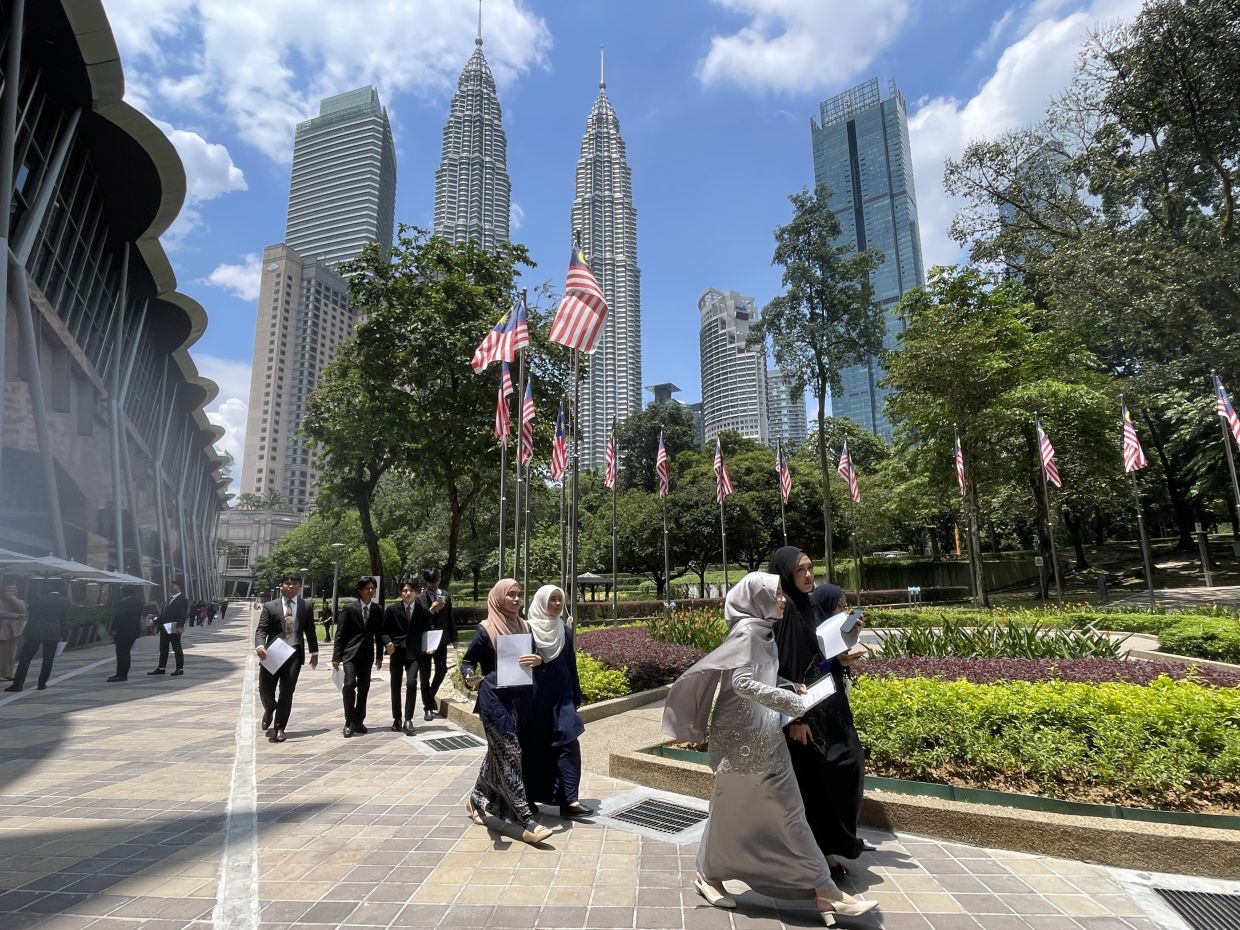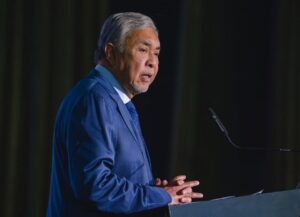PETALING JAYA: Malaysia is becoming a happier country, with the exception of the folk in Kuala Lumpur and Labuan – at least, according to the data.
The two federal territories were the only areas that saw a dip in happiness scores, even though the overall score for Malaysia increased from 6.48 in 2021 to 7.6 last year.
All other states reported higher happiness levels from 2021 to 2024.
Residents in Kuala Lumpur generally felt less happy, especially when it came to income, culture and family.
These components deteriorated the most for Kuala Lumpur in the Malaysia Happiness Index – a series of surveys conducted in 2021 and 2024 by the Statistics Department.
The nation’s capital is still within the “happy” category, but its score in the index went down by 0.55 points – from 7.77 in 2021 to 7.22 last year.
Similarly, Labuan’s score fell from 9.29 in 2021 to 7 last year – the lowest score among other states and territories nationwide in 2024.
The scores in the index are categorised from “very unhappy” (0 to 2), “unhappy” (2.01 to 4), “moderately happy” (4.01 to 6), “happy” (6.01 to 8) to “very happy” (8.01 to 10).
The state with the highest happiness score last year was Terengganu, followed by Johor and Negri Sembilan.
But it was Melaka which had the biggest jump in happiness, showing a boost of 1.98 points from 5.85 in 2021 to 7.83 last year.
Perak and Selangor each had the second and third largest spike.
Here’s how the scores changed for each state from 2021 to 2024:
The pursuit of happiness
Decline in the quality of family relationships, income levels and involvement in cultural activities.
Such are possible reasons for the dip in happiness scores in Kuala Lumpur, as these three components saw the biggest drop for residents in the index.
Demographer Chai Sen Tyng said the findings echo trends seen in more developed countries, where cost of living can be a cause of stress among the people.
“Happiness levels in megacities often drop due to a combination of stressors related to the physical and social urban environment.
“Such can offset the benefits of economic opportunities and amenities,” said Chai, a research officer at Universiti Putra Malaysia’s Malaysian Research Institute on Ageing.
Respondents in Kuala Lumpur rated lower happiness for all 13 components in the index, compared with 2021.
The Malaysia Happiness Index was measured based on 13 components, including family, housing and environment, social participation, health, communication facilities and education.
Other components were working life, income, public safety, time use, culture, religion and spiritual and emotional aspects.
Here’s a closer look at how residents responded:
Alliance for a Safe Community chairman Tan Sri Lee Lam Thye said Kuala Lumpur is a very developed, vibrant capital but several issues are affecting happiness, especially the rising cost of living.
“Salaries remain mostly stagnant, while the cost of living is up.
“Traffic congestion and long daily commutes also take a toll on mental health,” he said, adding that poor work-life balance also didn’t help the situation.
Another factor Lee highlighted was the shrinking green spaces in the city, which can add to urban stress and pollution.
“There also seems to be a social disconnect among people in such a fast-paced city environment.
“People go to work and then they go home, feeling tired. The cycle then repeats,” he said, adding that social connections were important to feel fulfilled.
On Terengganu having the highest score for happiness, Lee was not surprised, owing it to the peaceful and slower paced environment there.
“They may not be as urbanised as Kuala Lumpur but as far as the people are concerned, they are able to go to work at their own pace, with plenty of time to spend with family and friends,” he said.
For residents in Labuan, their happiness levels saw the biggest drops for communication facilities, housing and environment and income.
In a state of happiness
Among the states in Malaysia, Melaka emerged as having the biggest spike in happiness.
From a score of 5.85 in 2021, people generally felt more upbeat, leading to a higher reading of 7.83 last year.
What stood out was the level of happiness for social participation – it shot up from 5.49 or “moderately happy” to 8.14 in the category of “very happy”.
Chai said it was possible that Melaka recovered a lot because tourism resumed after the Covid-19 pandemic restrictions were lifted in 2022.
“The state is one of the most sensitive post-Covid recovery,” he said of the state, known for its tourism attractions and rich history.
He also noted that Melaka was above the national average when it comes to most aspects like culture and working life.
Check out how people in your state responded to the happiness survey here:
Overall in Malaysia, happiness levels increased nationwide from 2021 to 2024.
People were the happiest when it came to their religion and spiritual practices, including the meaning of life.
This was followed by family relationships and time used for rest, sleep and leisure.
Better times ahead
To boost happiness among the rakyat, the government has to keep listening to the people and trying to put in place real solutions to problems.
This is especially for bread and butter issues, said Chai.
“It doesn’t matter what state we are in, people want the same things in life.
“Happiness to the rakyat is about meeting basic needs and being hopeful for the future,” he said.
Chai said as Malaysia improves its basic amenities, housing, transportation and jobs, people can be happy when they can thrive and not be crushed under the grind of daily survival.
Having a younger population or higher fertility was not always the key to a happier country.
“We don’t need a population of 70 million to make this country better.
“Small countries can enjoy growth and success with sustainable measures in place,” he said.
Moving forward, Lee said policy makers and employers should try to increase income opportunities for the people to improve their quality of life.
“The government can work towards reducing living costs and strengthening social protection.
“Bosses can also create family-friendly work policies and environments to help provide balance,” he said, adding that mental health support systems should also be boosted.
Lee said at the end of the day, happiness is not measured by skyscrapers and malls, but how safe, valued and fulfilled people feel in their lives.






